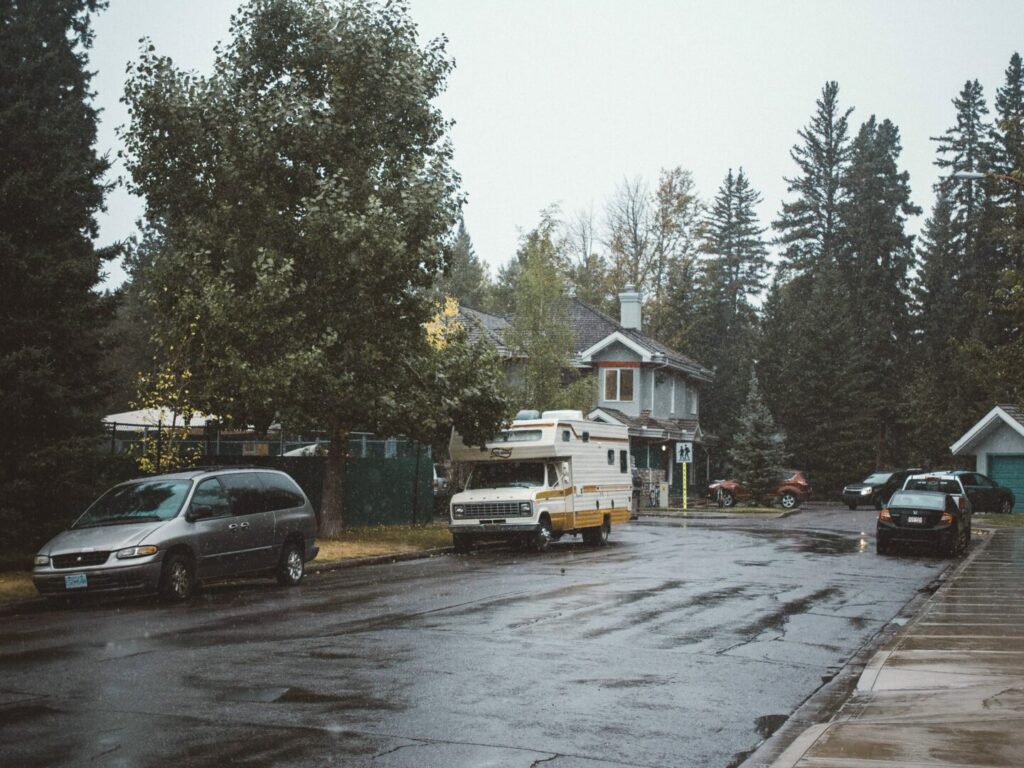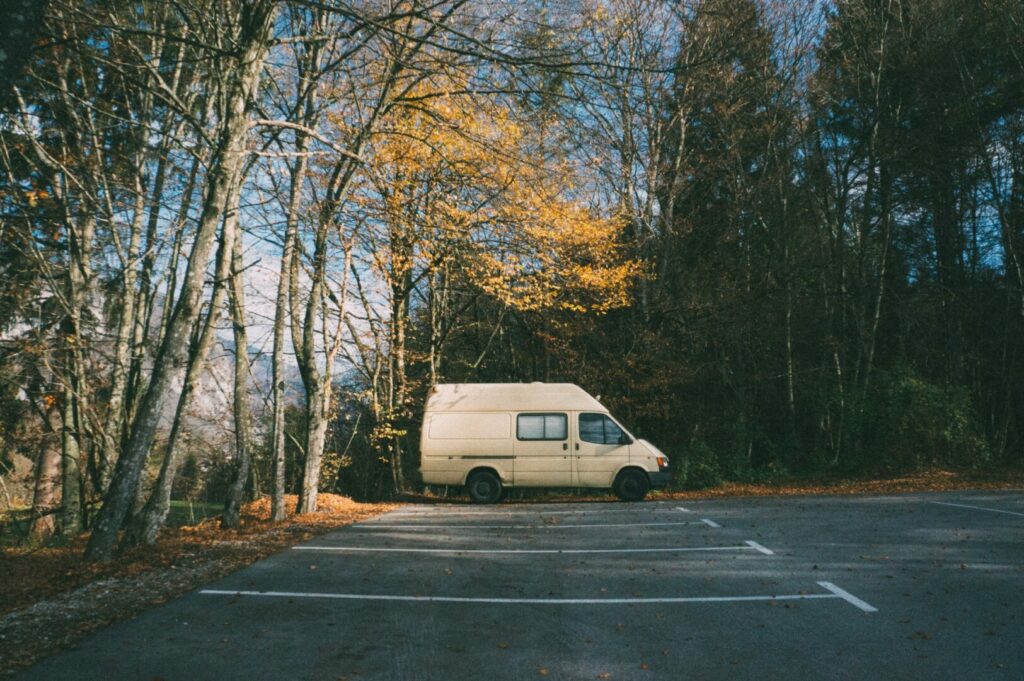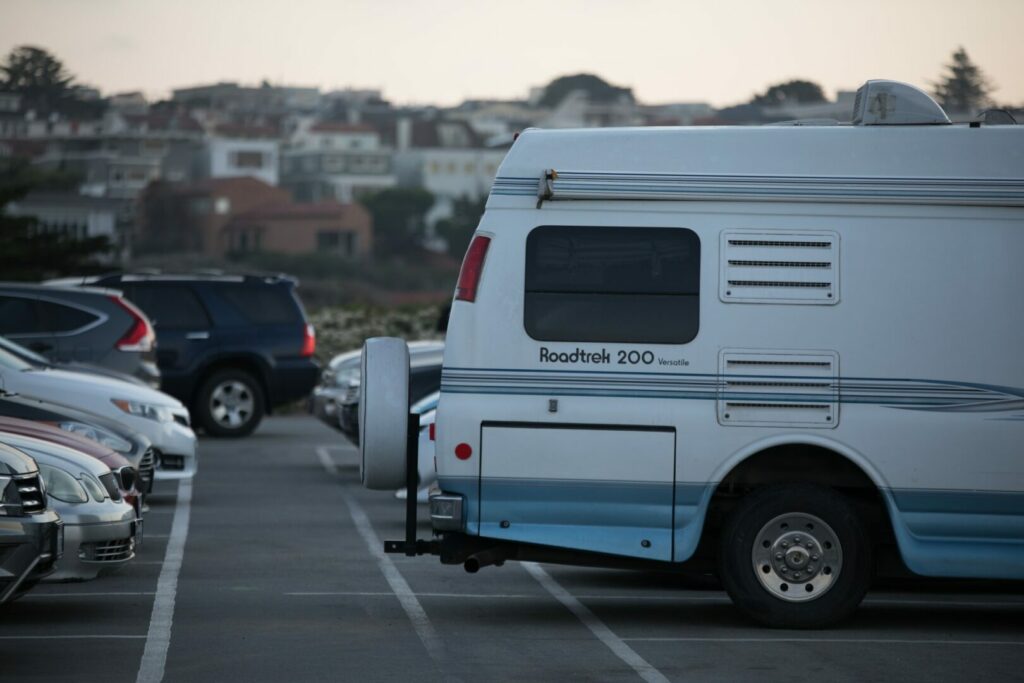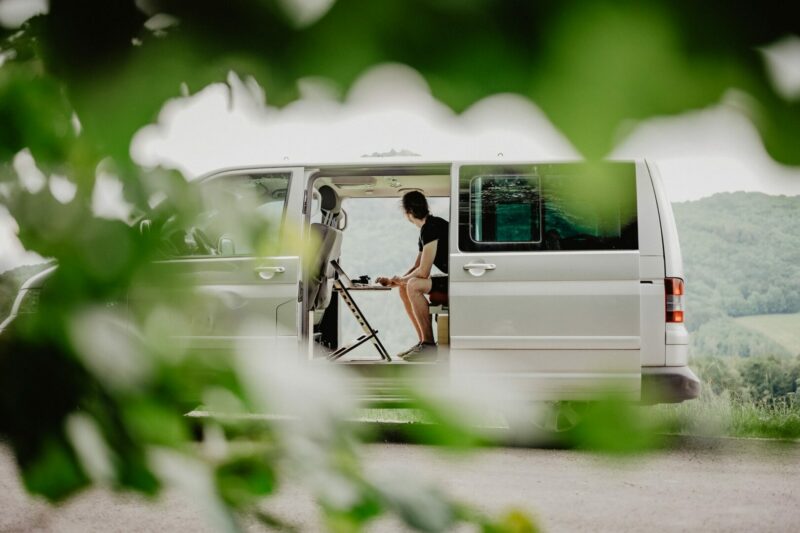Table of Contents Show
Have you heard of stealth camping? Most RVers take their rigs on vacation or for a long weekend away, with a specific destination in mind. They secure reservations at a favorite campground or state park and look forward to a week or two of fun and relaxation while exploring nearby attractions.
But some campers wish to stay right in the thick of things — maybe downtown or near a beach for the night. They may not have a campsite within distance. How can these RVers stay in their rigs, remaining in plain sight but flying under the radar? They practice the age-old system of stealth camping.
What Does Stealth Camping Mean?
For many, stealth camping only involves camping in wild, unexplored places. But in today’s vernacular, the term extends to camping in places that aren’t designated as ‘campsites’ but are perfectly legal to park overnight.
Most stealth campers use vehicles that don’t stand out as an RV. For instance, camper vans and Class B motorhomes look like typical cargo vans or minivans. A white camper van can usually park on a city street with legal overnight parking without drawing any attention.
Most stealth campers hang a blackout curtain between their cab and living space and keep noises down when staying overnight. After all, the point of stealth camping is to stay for a night or two, if allowed, then move on.
Is Stealth Camping Illegal?
Every city, town, or municipality has different laws regarding parking. Many of the most popular destinations like a beach or resort might allow daytime parking in specific areas but blatantly state that you can’t park overnight. So a short answer to this question is that you can usually stealth camping in approved areas.
However, try to avoid camping in a residential neighborhood even if you don’t see “No Overnight Parking” signs. If you lived in one of these tight-knit communities and noticed an unrecognizable RV parked on the side of your street for a day or two, you might feel nervous. So you should use common sense when selecting a stealth camping spot.

In some larger cities, travelers can look up the parking regulations online, making a plan in advance where they can sleep overnight while remaining within the city limits.
But many municipalities have passed temporary prohibitions against staying overnight in a parking lot like Walmart. Many local lodging and campground facilities push these laws, so they don’t miss out on business from stealth campers not paying for a nightly room or campsite.
Some like to stealth camp because they can stay overnight in the area they want to explore during the day. They may also find that the camping locations are expensive, and their budget does not allow for such extravagances. Still, others just need a spot to lay their head while passing through.
Pro Tip: With more and more restrictions happening, here’s how to find a Walmart that allows overnight parking.
How Do You Get Away With Stealth Camping?
You can find entire tutorials on how to stealth camp covertly, but you don’t need to feel like you have to hide if you have parked in a legal area. But you can also avoid drawing undue attention to yourself.
First and foremost, make sure you don’t see any “No Parking” signs in the area where you’d like to stay. Look for safe places where you can get a good night’s rest without worry. This can include a commercial parking lot, like a hotel where your RV will fit in, or possibly at a 24-hour business like a gym or Walmart.
Some stealth campers park in apartment complexes, where vehicles come and go frequently. Just make sure they don’t require a parking pass. Others have found parking spaces on downtown streets in small towns. If you ask first, many businesses will allow you to park in front of them overnight.

To make your RV less noticeable, block out light that might come from within your vehicle. Create window coverings with black on one side and reflective material on the other. Keep your television or conversations down if you stay near populated areas.
And don’t enter or exit your rig in your pajamas carrying a mug of coffee. Neighbors might think you intend to set up residence there. Don’t put a camp chair outside either. Take your pets for the nightly walk at your location before you pull into the spot.
Remember, stealth camping is not a campground setting. It just serves as a place for you to get some sleep, then move on.
Tips for Stealth Camping
Here are a few specific tips to help you stealth camp safely and avoid that dreaded 2 a.m. knock on your door:
Make Sure Your Vehicle Isn’t Obvious
A large RV bus does not make a good stealth vehicle. However, small Class B and B+ vans can easily hide in plain sight because of their smaller size.
Some experienced stealth campers have taken their awnings off and hidden their solar panels from view on the roof to blend in.
A few van owners even go so far as to put magnets on the doors of their vehicles with a business logo. Some people place a construction helmet or clipboard on the dash to ward off lookie-loos.
Find a Safe Spot
Look for a safe yet quiet spot. Do your reconnaissance during daylight hours, searching for a parking space in a place that offers some safety but has a bit of traffic so that you will fit in. Try to avoid unsafe or secluded neighborhoods.
Don’t Setup Any Type of Camp
Don’t pull into your parking spot and pull out the grill or camp chairs. Remember, you can’t establish residency here. Just look for a good spot to sleep and explore nearby in the morning. If you want a place to eat outside, find a local park instead.
Pro Tip: It may seem like common sense, but you’d be surprised how many RVers break these 6 parking lot boondocking rules.
Don’t Stay in One Place Too Long
Again, this stealth camping spot is not your new zip code. You can generally stay one or two nights in one place. Don’t wear out your welcome or leave the neighboring homes or businesses with a bad impression of overnight campers.
Some may already feel that you are ‘getting a free ride’ by staying there. Only camp where you can legally park overnight or where you have gotten permission.
Stay Quiet, But Friendly
Keep your television, computer, and pets quiet during your stay. This also keeps you under the radar and in your neighbors’ good graces. And if someone walks by, act like you belong right where you are. A smile or kind word goes a long way when people get curious.

Only Stealth Camp If You’re Willing to Take the Risks
The biggest risk with stealth camping is being awakened in the early morning hours and asked to leave your parking spot. So plan your ‘campsite’ accordingly. Look for the perfect spot during daylight hours, then return after the sun sets, ready to turn in soon after your arrival.
A good stealth camper knows that these nighttime spots work only for quick rests. Save your daytime parking spots for a little living. Have you stealth camped before?







Businesses like large automotive retail stores, especially those that are in a box store or power center, and typically have vehicles parked on or around their lot overnight are good spots for a quiet sleep.